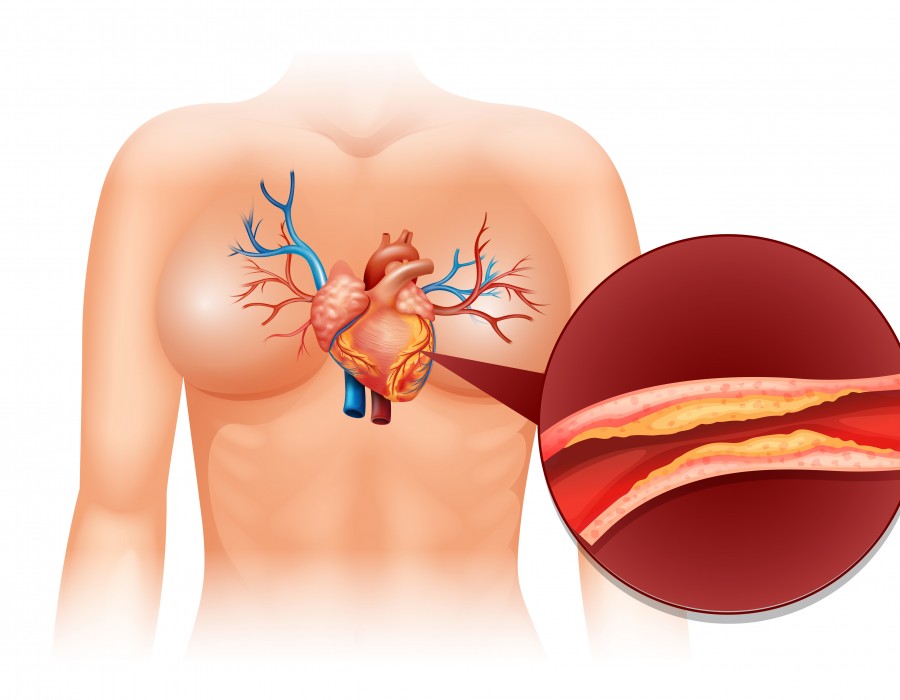Cholesterol is a fat-like substance that your body needs to make hormones, cell membranes, and other substances. It's carried in your bloodstream as spherical particles called lipoproteins.
There are two types of lipoproteins, low-density lipoprotein (LDL) and high-density lipoprotein (HDL). Too much LDL can build up in your arteries, forming plaque that can block your arteries and raise your risk of heart disease.
Bad Diet Habits
Bad diet habits are the main reason that many people have high cholesterol. Changing your diet can help to lower your cholesterol level and reduce your risk of heart disease. Generally, you should eat a healthy, balanced diet that is low in fat and includes lots of fruit and vegetables. You can also have other foods such as fish, nuts, chicken, and lean red meat in your daily diet.
One type of bad diet habit that has been linked to high cholesterol is excessive consumption of saturated fats. Saturated fats are found in many meat, dairy products, and tropical oils like palm oil.
Another bad diet habit is excess consumption of trans fats, which can increase LDL and reduce HDL (good) cholesterol levels. Trans fats are often found in fried foods, baked goods, cookies, crackers, and margarine.
The most effective way to control your cholesterol is to change your eating habits to a healthier, heart-healthy lifestyle. You should eat a diet that is low in fat and includes plenty of fresh fruits and vegetables, whole grains, lean proteins, and low-fat dairy.
Read also: High Cholesterol and Headaches – What is the Connection?
Obesity
Obesity is a chronic health condition associated with high cholesterol, diabetes, and other conditions. It is a common cause of heart disease, stroke, and many types of cancer.
Several factors, including genetics and behaviors, can cause obesity. Your diet and lack of physical activity can also cause it.
People with obesity tend to eat foods high in fat and calories. These foods include fast food, processed meats, and high-calorie beverages. A body mass index (BMI) usually determines a person's weight. This measure compares a person's height and weight and determines whether a person is overweight or obese.
Obesity can lead to health problems affecting nearly every body system, such as high triglyceride levels, low HDL cholesterol, and increased blood pressure. It can also increase the risk of developing coronavirus disease 2019 (COVID-19). These diseases can be life-threatening, so addressing any obesity-related health problems as soon as they arise is important.
Lack of Physical Activity
Physical inactivity is a major factor in developing high cholesterol and heart disease. It occurs more frequently in women, blacks and Hispanics, older adults, and the less affluent. The World Health Organization (WHO) recommends at least 30 minutes of moderate-intensity physical activity on most, if not all, days of the week. This can include activities such as walking, cycling, and swimming.
Regular exercise has been shown to lower bad cholesterol (low-density lipoprotein, or LDL) and increase good cholesterol (high-density lipoprotein, or HDL). When you exercise enough, your body produces more HDL cholesterol to help remove fatty buildup from the sides of blood vessels.
Studies have found that physically inactive people develop heart disease at a much younger age than those who are active regularly. The CDC aims to help 27 million Americans become more physically active by 2027 through its Active People, Healthy Nation(sm) initiative.
Read also: The Complete Guide to Carcinoid Heart Disease and How it is Diagnosed?
Smoking
Smoking damages your blood vessels and lowers HDL (good) cholesterol levels. These changes increase your risk of developing heart disease. Your family history also makes a difference in your risk of high cholesterol. People with a high-risk family history should start taking cholesterol medication at a younger age.
A healthy diet can help reduce your cholesterol level. Eat plenty of fruits, vegetables, whole grains, and fish. Low-fat dairy products, low-fat meats and eggs, and fat-free or low-fat milk can all be beneficial in lowering your cholesterol.
Smoking causes several health problems, including lung cancer. It can also cause a condition called chronic obstructive pulmonary disease (COPD), which makes it hard to breathe. COPD can lead to symptoms like shortness of breath and coughing up mucus. It usually gets worse over time and can be fatal if you smoke for many years.





Comments